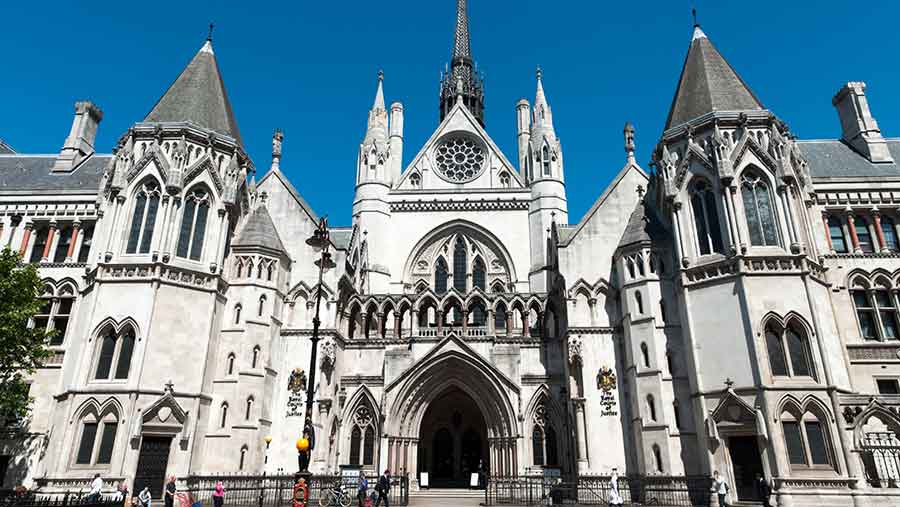Farmers win High Court battle over entitlements
 © Alex Segre/REX/Shutterstock
© Alex Segre/REX/Shutterstock A farm business has won a legal test case after challenging a ruling by the Rural Payments Agency that it was unable to activate Single Payment Scheme entitlements against land which was only available for a short period.
T & S King, a husband and wife farming partnership, took the case to the High Court after a protracted fight with the RPA and Defra.
The problem arose after the Kings sold their farm in Lincolnshire with the intention of buying a farm in Scotland to be closer to ageing parents.
See also: £1.3m payout in ‘Cowshed Cinderella’ case slashed on appeal
The farm was sold in 2007 and the Kings retained the Single Farm Payment entitlements. However, it took three years for them to find another farm which left them with 135.99 SPS entitlements and no land on which to activate them.
While the Kings carried on farming during 2007-2010, renting land under a series of short-term arrangements, none of the agreements were suitable for activating their entitlements.
Concerned that they would lose them if they were not claimed against, the family was advised by a land agent that they could enter into a short-term agreement with a farm in Somerset which had eligible land, but no entitlements to claim against it.
Farm Business Tenancy
In 2009, the Kings entered a Farm Business Tenancy with the Wakely family for a block of land for a 10-day period from 10-20 May 2009. This gave them control of the land for the crucial 15 May date – thus enabling an SPS claim. A similar approach was taken in 2010 and 2011.
In return, the Wakelys were contracted to maintain the land in good agricultural and environmental condition throughout the whole of the year.
In late 2011, once the Kings had moved to Scotland they applied to the RPA to transfer their entitlements in order to sell them.
However, the RPA refused their request ruling that the arrangement with the farm in Somerset was artificial and had no commercial purpose other than obtaining entitlement payments. It argued this fell foul of Article 30 of the EU Council Regulation (EC) No 73/2009 and was contrary to the objectives of the scheme.
The Kings were told they would have to repay all subsidy paid to them in 2009 and 2010 and the entitlements would be returned to the national reserve under “use it or lose” it rules.
But a High Court ruling published in July has reversed this decision.
Justice Cranston acknowledged that the arrangement was artificial, but said it was not against the objectives of the scheme.
He pointed out that the Kings sold their farm for quite legitimate reasons, made genuine efforts to locate a new one, but faced difficulties in doing so.
During the search the Kings were also still engaged in full-time farming, but not on land which enabled them to activate their entitlements under the scheme.
Agreement
The contract farming agreement between the Kings and the Wakelys also meant the Wakelys were bound to maintain the land in good agricultural and environmental condition throughout the whole of the year.
Jonathan Carroll, partner with solicitors Cartmell Shepherd, said: “In the context of a ‘proper’ farmer, and with the land being kept as the scheme would require, the judge found that the scheme objectives had not been breached and therefore the level of artificiality in the arrangement did not matter.
“One can only speculate, but it is a fair bet that a non-farmer might have got a different result, and might still.
“The case gives a reminder to those advising potential BPS claimants not to get ‘too clever’, but gives genuine farmers some comfort that the courts will not make their lives harder than, in many cases, they already are.”
